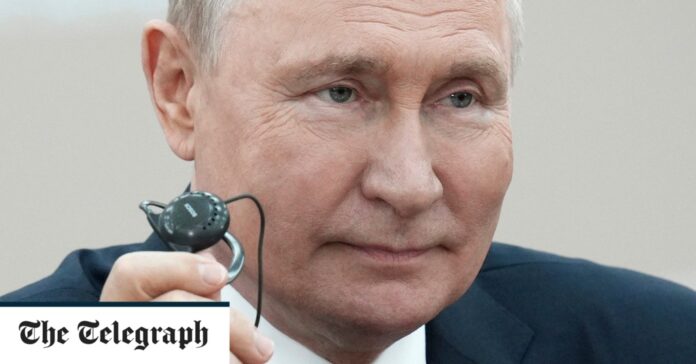If London hopes to defuse the Kremlin’s information operations, it must start by giving Moscow a taste of its own medicine
The Russia-Africa summit began in St Petersburg today. To welcome delegates, Vladimir Putin wrote an essay on the Kremlin website asserting that Russia was always there to support the African people “in their struggle for liberation from colonial oppression”. In doing so, Putin reverted to a common refrain in which Britain is demonised as a coloniser.
Yet, unlike Britain, Russia today remains a colonial power. Its strategic goals in Africa include ousting Western influence, acquiring vital ports and access to natural resources, and using the region to evade sanctions imposed by the West. Wielding Russia’s military presence in Africa via the Wagner Group, the Kremlin has attempted to secure these key objectives by conducting information operations that stoke anti-Western and anti-colonial sentiments.
In April, Russia’s ministry of foreign affairs published a text on “British historical and international legal responsibility for colonial and post-colonial crimes.” Moscow accused the UK of “historical amnesia” and urged the investigation of British “colonial crimes” by international organisations. Russian propaganda outlets take every opportunity to amplify messages related to colonialism and call for the dissolution of the Commonwealth.
In Africa, Russia has for years been using social media platforms, influencers, and propaganda outlets such as RT and Sputnik to shape narratives. Last week, its foreign affairs ministry announced that Sputnik Africa was finally available on smartphones as an app for “all those tired of the one-sided and biased Western-centred coverage of all things Africa”.


